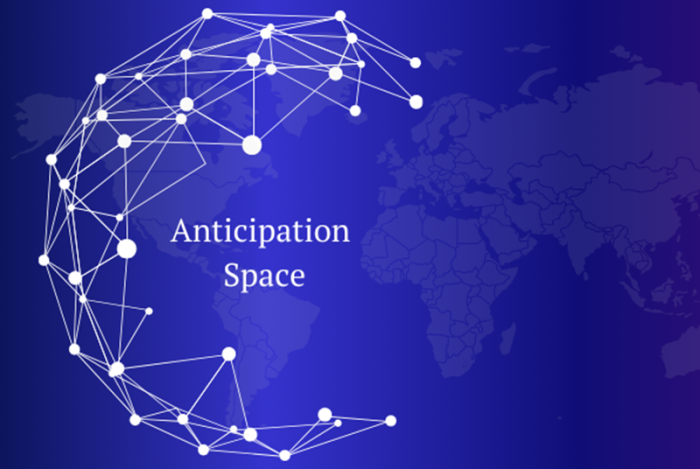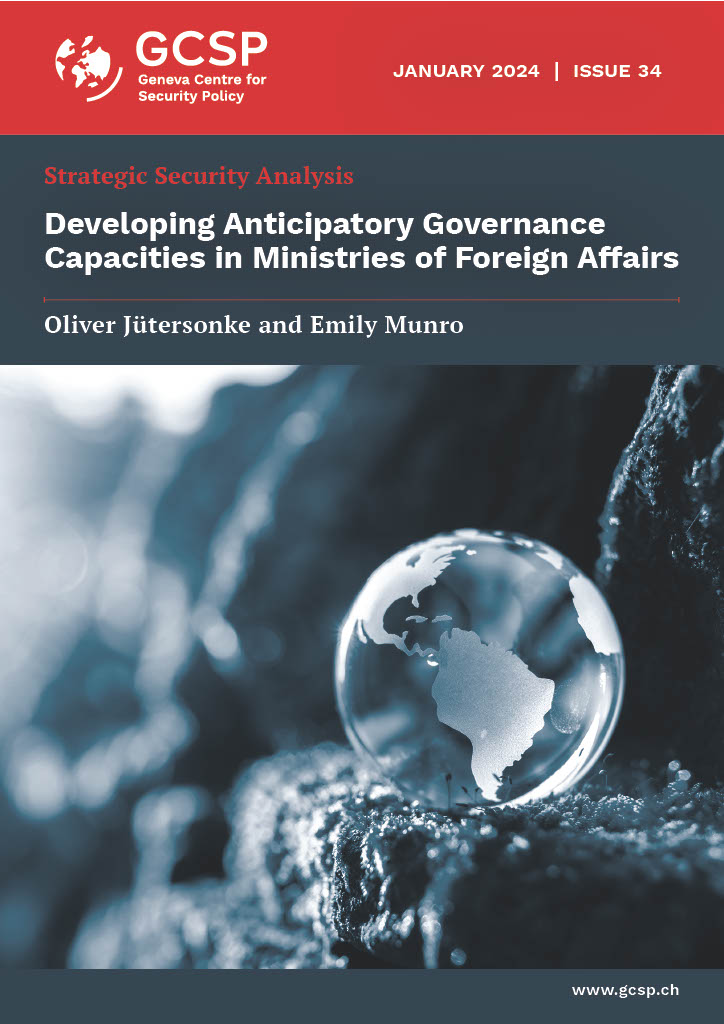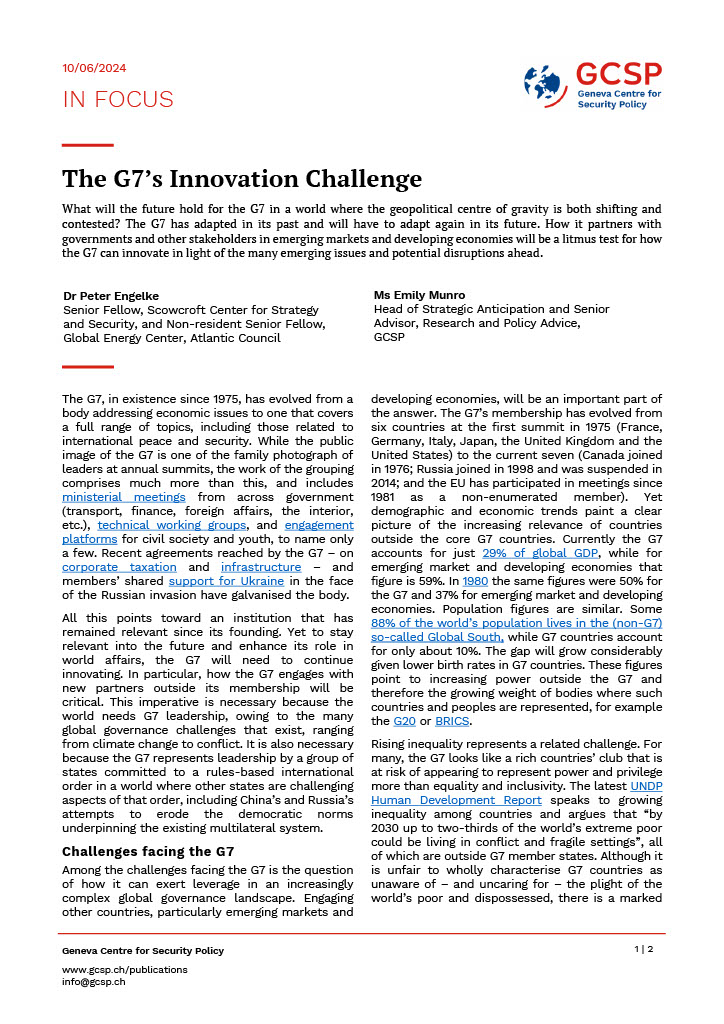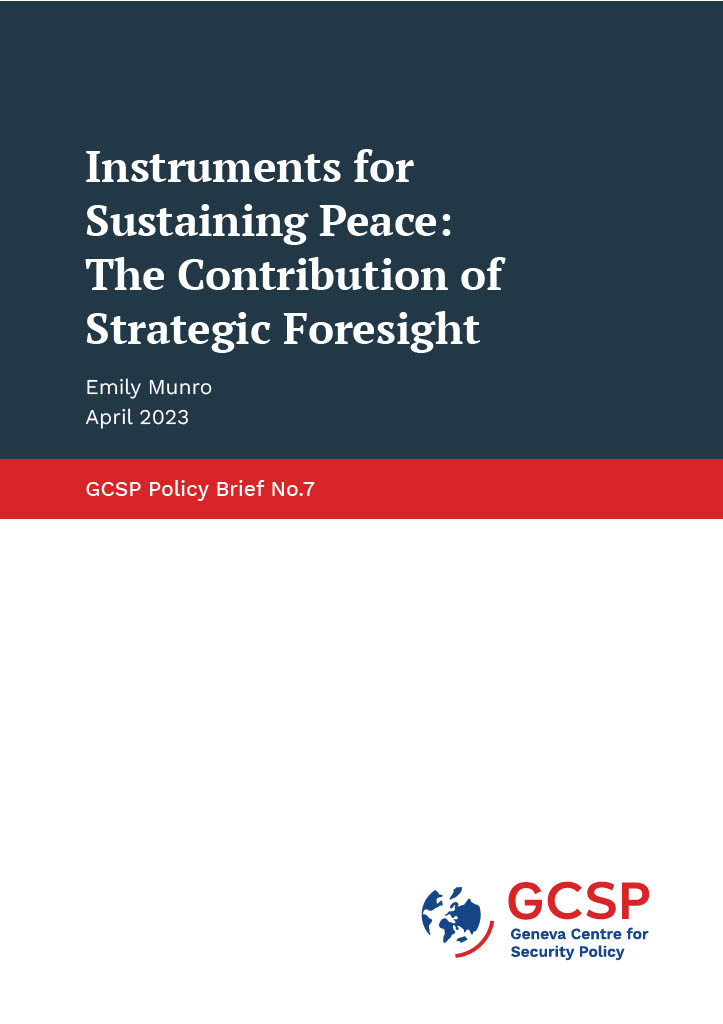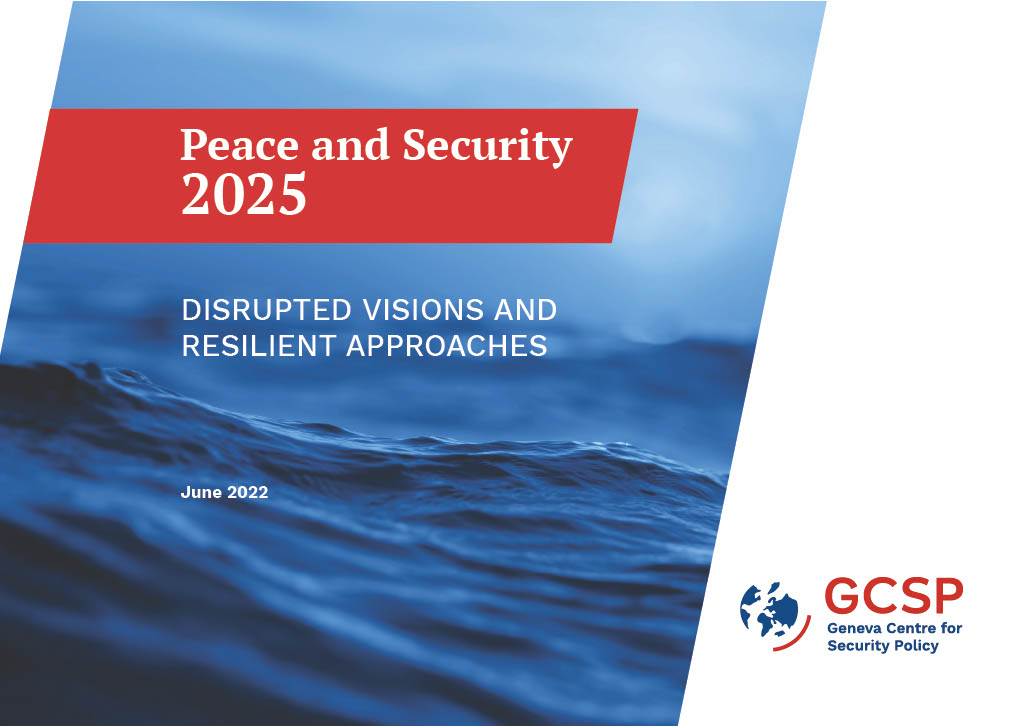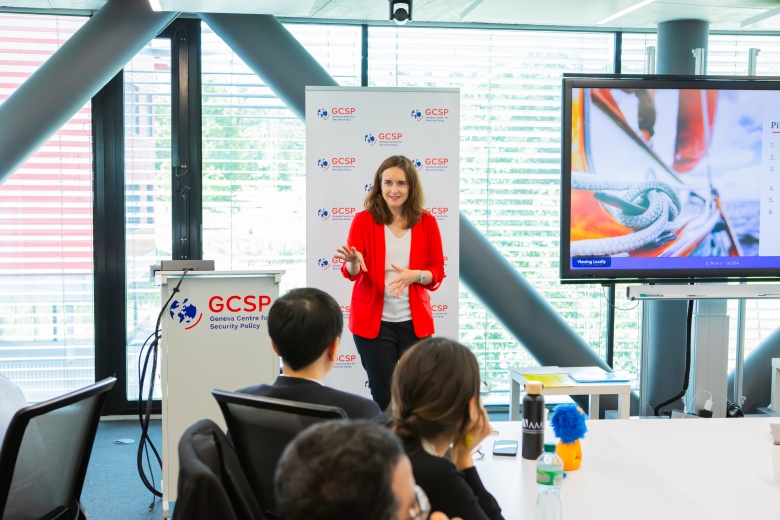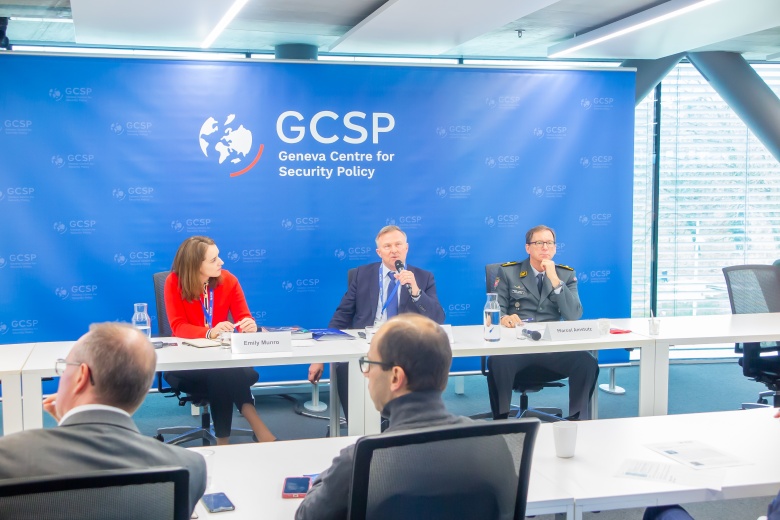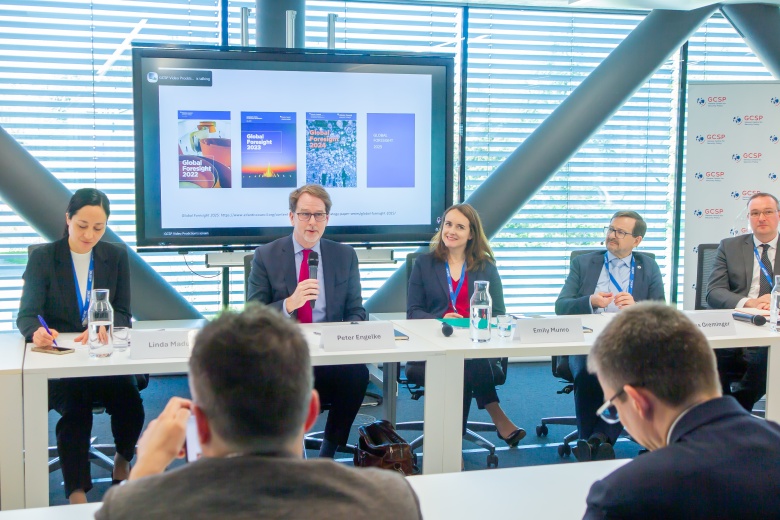Strategic Anticipation
The global security environment is changing at a fast pace and turbulence is on the rise. Actors need to move from spending too much time reacting, to more proactively identifying & exploring the implications of what may be ahead.
The GCSP’s Strategic Anticipation Cluster encourages a forward-looking approach in peace and security amongst its stakeholders to support more effective strategic planning and better decision making today. It does so by focusing on three interrelated aspects:
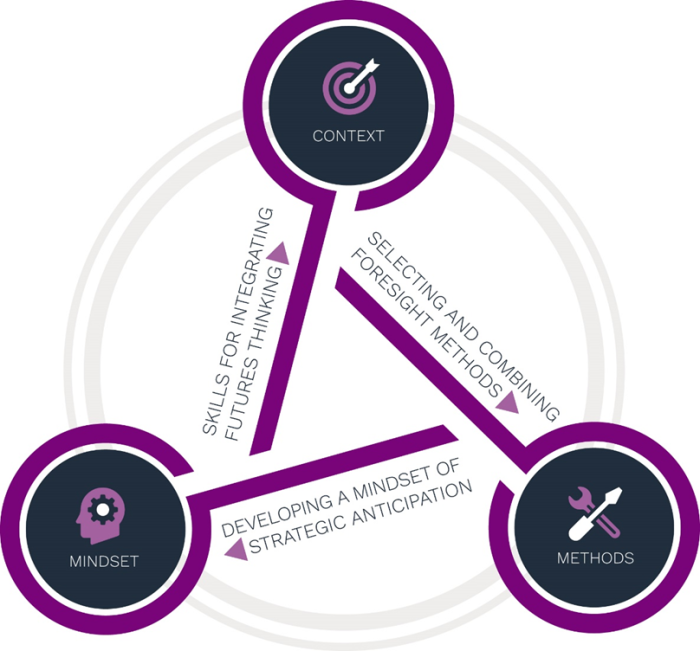
The GCSP works with a wide range of stakeholders on strategic anticipation including governments, international and regional organisations, non-governmental organisations, and the private sector.
Types of Activities
- Short courses that build knowledge and skills on strategic anticipation based on the three pillars of mindset adaptation, integration within organisations, and strategic foresight processes & methods;
- Customised projects on strategic anticipation and emerging issues to enhance insights or develop collective understanding within an organisation;
- Modules in existing GCSP courses throughout the year, including simulations to apply foresight methods;
- Analysis and research are conducted to advance thinking and practice on strategic anticipation;
- Policy advice that provides guidance on strategic anticipation in organisational settings and for diplomatic dialogues, for example; and,
- Public events raise awareness of the importance of harnessing insights about the future to increase the policy options we may consider today.
Organisations and individuals must be prepared for a variety of possible threats and ready to take advantage of opportunities, both of which may appear in different forms than in the past and which will call for creative responses. Through these activities the GCSP makes strategic anticipation in peace and security accessible and relevant to the different actors in the international community.
Please reach out to us for further information or suggestions for collaboration. Contact information: [email protected]
Spotlight on Customised Projects
The GCSP Strategic Anticipation Cluster engages in collaboratively designed projects throughout the year. For example,
- In support of the UN 2.0 Quintet of Change, GCSP delivered a comprehensive strategic foresight training series for a UN entity.
- For a regional organisation, the GCSP offered a one-day course at their headquarters for director and deputy directors of departments.
- For a government ministry, the GCSP provided advice on integrating strategic organisationally and guidance on strategic foresight process design.
- For a humanitarian organisation, the GCSP co-designed and co-delivered with that organisation a strategic foresight retreat for a team.
Open-enrolment Courses
We offer short courses that build knowledge and skills on strategic anticipation based on three pillars of strategic anticipation—mindset adaptation, integration within organisations, and strategic foresight processes & methods:

Insights and Analysis from the GCSP’s Strategic Anticipation Cluster
GCSP Strategic Foresight Community
Networking and staying up to date on strategic foresight
The GCSP Strategic Foresight Community is a group of individuals who have engaged with the GCSP on strategic foresight through joint projects or attending a foresight course. It is an opportunity to exchange for them to broaden their networks, keep updated on the latest developments in the field, and share insights. Regular virtual meetings take place and a GCSP LinkedIn Group allows for online contacts.

Anticipation Space Event Series
A key part of the GCSP’s strategy is to look over the horizon to anticipate, explain, and prepare for future risks and challenges. As actors in peace and security we spend much of our time reacting to crisis and focussing on topics with short-time horizons. The Anticipation Space series provides a setting at the GCSP for exchange amongst GCSP stakeholders and Strategic Foresight Community members on issues that need greater attention today, to prepare for tomorrow.
